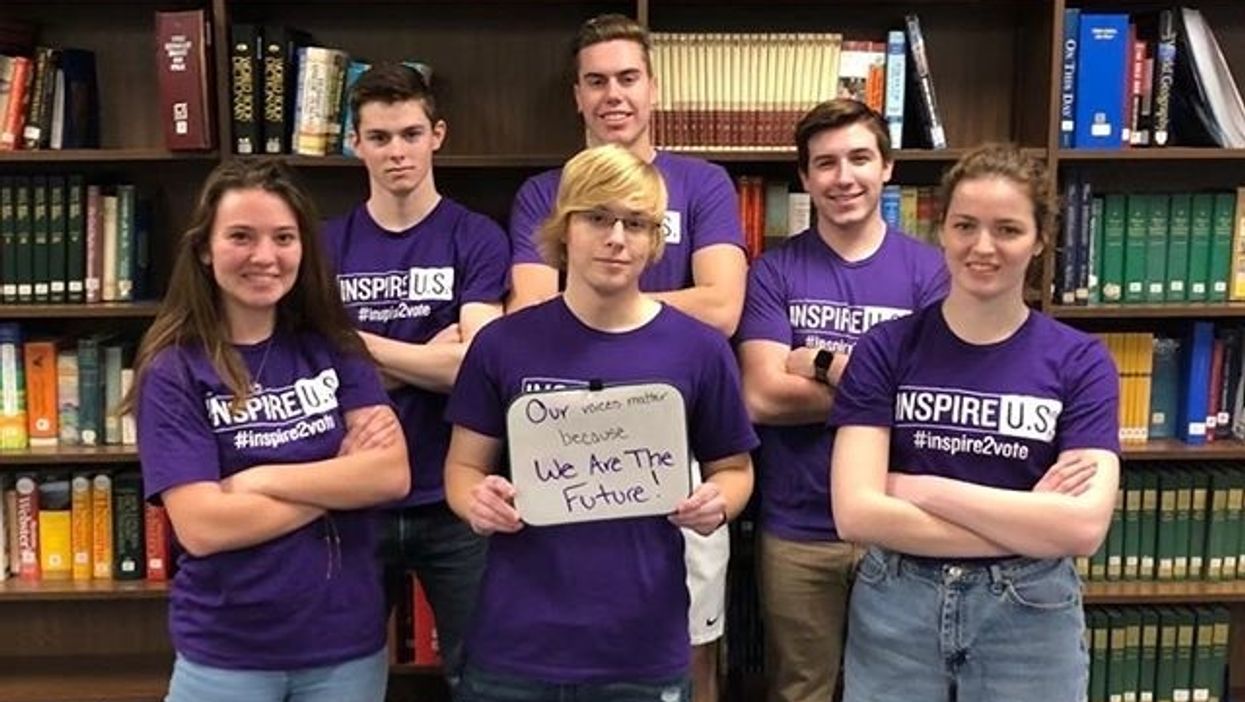Riffey, a 2019 graduate of Hedgesville (W.Va.) High School in West Virginia, is an Inspired Leader with Inspire U.S., which encourages high school students to register to vote.
Growing up in rural West Virginia, the closest I came to politics was an occasional run-in with campaign yard signs along the road to school. They never really meant much to me – or any of my classmates for that matter. Politics was a topic for our grandparents. In fact, my mom voted for the first time at 38 years old. Then, I attended American Legion Mountaineer Boys State and heard from members of Inspire U.S. The opportunities they provided for a motivated high school student were too good to be true – so I joined. I learned all the things I needed and gained the tools to come prepared for a year of registering high school students to vote.
That year came and went fast. After the nearly 300 eligible seniors were registered at Hedgesville High School, I felt there was more to be done. Our close-knit group of Inspired Leaders at Hedgesville then traveled nearly two hours to register students at Keyser High School and Frankfort High School. We finished our year strong at James Rumsey Technical Institute across the street with close to 120 new voter registrations.
However, there was one issue that stuck out when registering these hundreds of students. They just did not seem to care. The most common question I was asked was "Why do I need to do this?" Sometimes I just wanted to say it was for the Jennings Randolph Award – given to schools by the West Virginia secretary of state for 100 percent voter registration – but I was a part of Inspire U.S. for more than just the recognition. I wanted to be a part of something more than me or my actions. I wanted to educate. So I learned to tell them how important it is to vote. I made that the foundation of our program at Hedgesville. It isn't that we are just registered to vote, it is that we go out and vote when the time comes. It's about the civic responsibility that we were given the right to participate.
My generation is often called lazy. With everything at the touch of a screen, that may just be productivity out-of-sight. Even things such as registering to vote have become easier with the Internet. That being said, there is no excuse for schools and governments across America that claim they can't get out the vote. If a group of six rural high school students can register hundreds of their peers in a few months, imagine what a similar group could do in a Manhattan or Los Angeles school. Local government can even get involved by setting up their own programs in schools, similar to Inspire U.S., and encourage the students to get involved with the political world — even if it's only to capture their vote on Election Day. By being exposed to this dialogue early on in their high school careers, students will feel obliged to be engaged and voter turnout will skyrocket.
By adopting a "voting curriculum" in the community, a tradition will begin. Since the 2016 election, with a little help from me, my mom got back to the polls for the 2018 primary elections. Now with two elections under her belt, she feels more welcome and motivated to vote in future elections. Having never voted myself, I feel more ready to cast my ballot with what I have done in the last year than ever before. On Election Day, I encouraged our Hedgesville Inspired Leaders to stand in the cold rain thanking voters while they bustled in and out of polling stations. Seeing so many familiar faces from the halls of school truly warmed my heart. It was that day that I realized how important and humble my duty was in giving these people a voice in our democracy.
In April, I participated in round-table discussions about education reform with local community leaders, lawmakers and teachers following the controversial introduction of the education omnibus bill in the West Virginia Senate. There, I spoke with my state senator on aspects of discussion that personally affected me. Having a voice in that moment motivated me even more to head to the polls when the time comes. I had never looked forward to Election Day until now – and with the implication of voter encouragement across the country, so will millions more young people.
A version of this was first published on Medium.



















